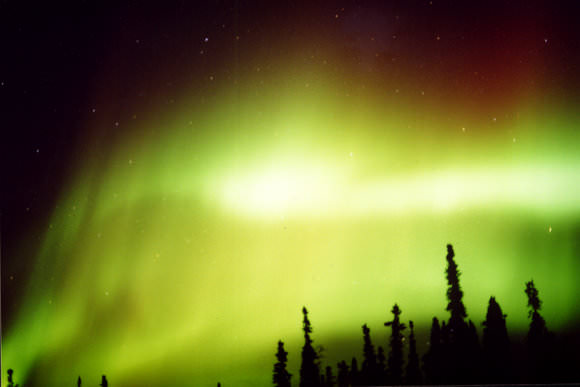I thought that I should write something interesting, instead of random rants....
My daughter’s favorite number is a google, which is 10 to the power 100. I tried to explain to her how big a google is, but was somewhat stumped. Let me explain.
Take the sun. The sun is about 100 times bigger than the Earth. Since we are only dealing with orders of magnitude here, let’s call it 1,000,000 km in radius, which is 10^6 km, or 10^9 m. The volume of the sun would therefore be 4/3 pi r^3, which is about 4x10^18 m3. Now, there are roughly 10^23 atoms in a cubic cm of water (I think…). This is 10^29 atoms in a m3. If we assume that the sun is 100 times more dense than water, we get something on the order of 10^31 atoms in m3 in the sun, so the number of atoms on the sun is something like (4x10^18 * 10^31) 4x10^49. Let’s round it off and say that there are 10^50 atoms in our solar system (i.e. add all the atoms of the planets together – the largest of which is 10 times smaller than the sun – and add it to the sun’s number of atoms).
Ok, I am reading this book that says that there are something like a billion (10^9 stars in our galaxy). That means, if the average star is about the same size as ours, there are 10^59 atoms in our galaxy. Now we really stretch things – if you take one of the pictures of a dark section of the sky from the Hubble telescope, it shows that there are thousands of galaxies in each little section of the sky (roughly about 1 million sections of the sky). Let’s then assume that there are 10,000 x 1,000,000 (or 10^10) galaxies out there, each of which is roughly the same size as ours. This means that there are a total of about 10^69 atoms on all of the galaxies out there. Even if we are off by a factor of a million somewhere, we still something like 10^75.
So, to get a google atoms, you need a billion, billion, billion universes.
A google is a BIG number.
BTW, if you assume that the universe is 20 billion years old, the universe is 6x10^17 seconds old. Compared to a google, the universe is a very, very, very young puppy.
Along the same lines, while walking on the beach in Chile, some friends of mine and I tried to figure out whether, in your life time, you breath in the whole atmosphere. Let’s assume that you take 1 breath per second and that you breath in 1 liter of air (which is 10^3 cm3, or 1^-3 m3). This means that it would take 1000 seconds (about 16 minutes) to breath in 1 m3. Assuming that you live to the rip age of 100 (3x10^9 seconds), you would breath in 3x10^6 m3 of air in your life time – 3 million cubic meters of air. Wow!
But, how big is the atmosphere? The surface of the Earth is 5x10^14 m2, while the atmosphere can be approximated to be a layer 10 km high (with uniform density instead of exponentially decreasing density!), which makes the atmosphere 5x10^18 m3 in volume. That means that you breathe in 0.00000000005% of the atmosphere in your lifetime. Yikes!
6 years ago

2 comments:
My head just exploded.
"I have a number in my head
Though I don't know why it's there
When numbers get serious
You see their shape everywhere
Dividing and multiplying
Exchanging with ease
When times are mysterious
Serious numbers are easy to please"
-- Paul Simon
To think all this time I felt so small and insignificant within the Universe. Now I see that it is the Universe that is small: it doesn't even have a googol atoms in it! Pffha.
P.S. - it's spelled "googol" - I know because I Googled it. ;)
Post a Comment